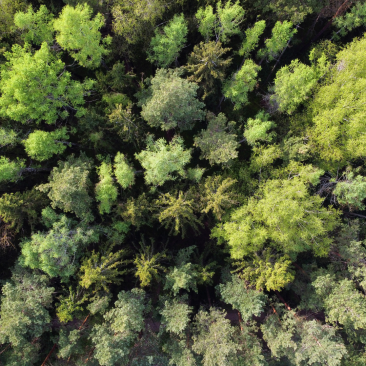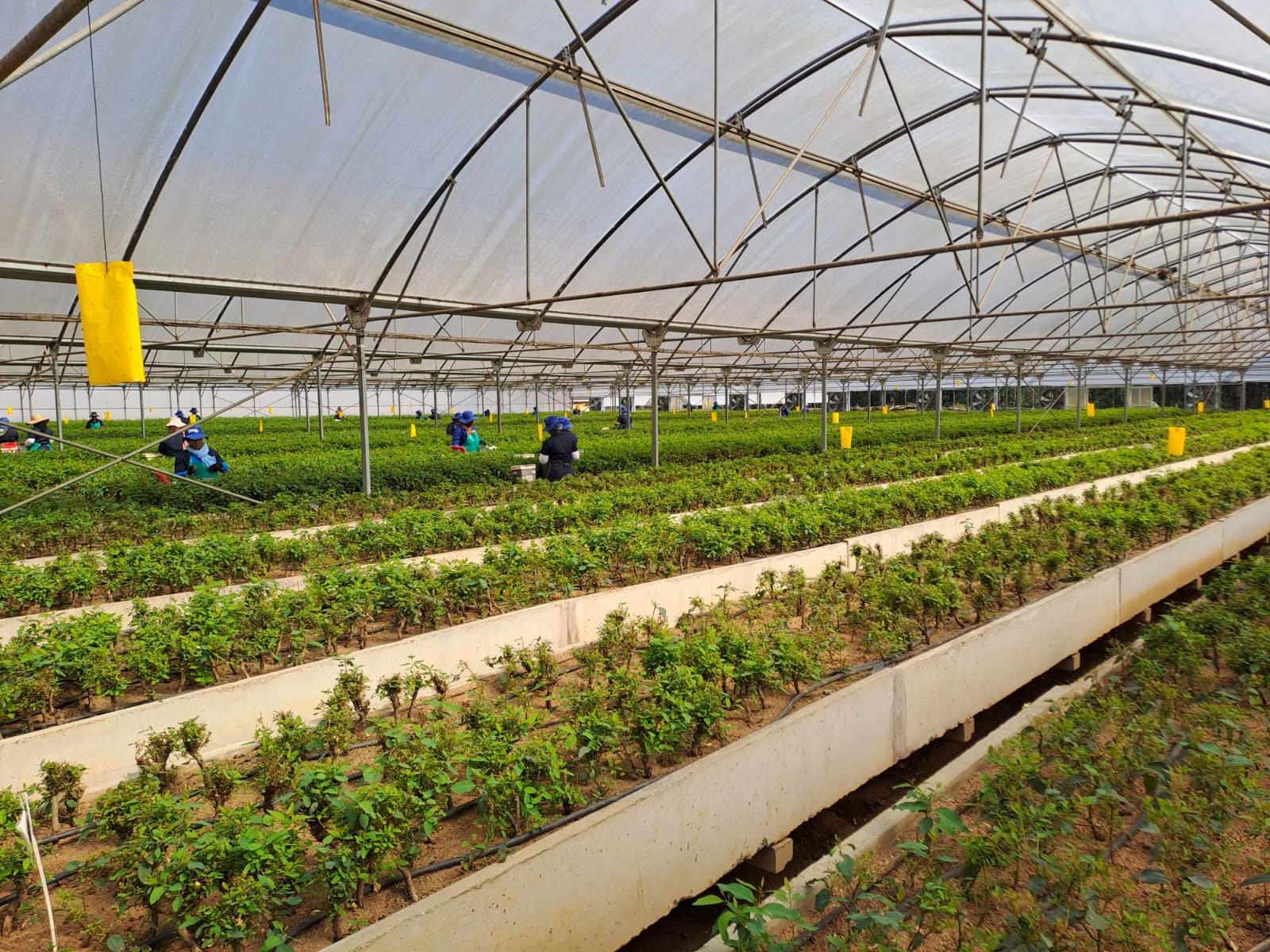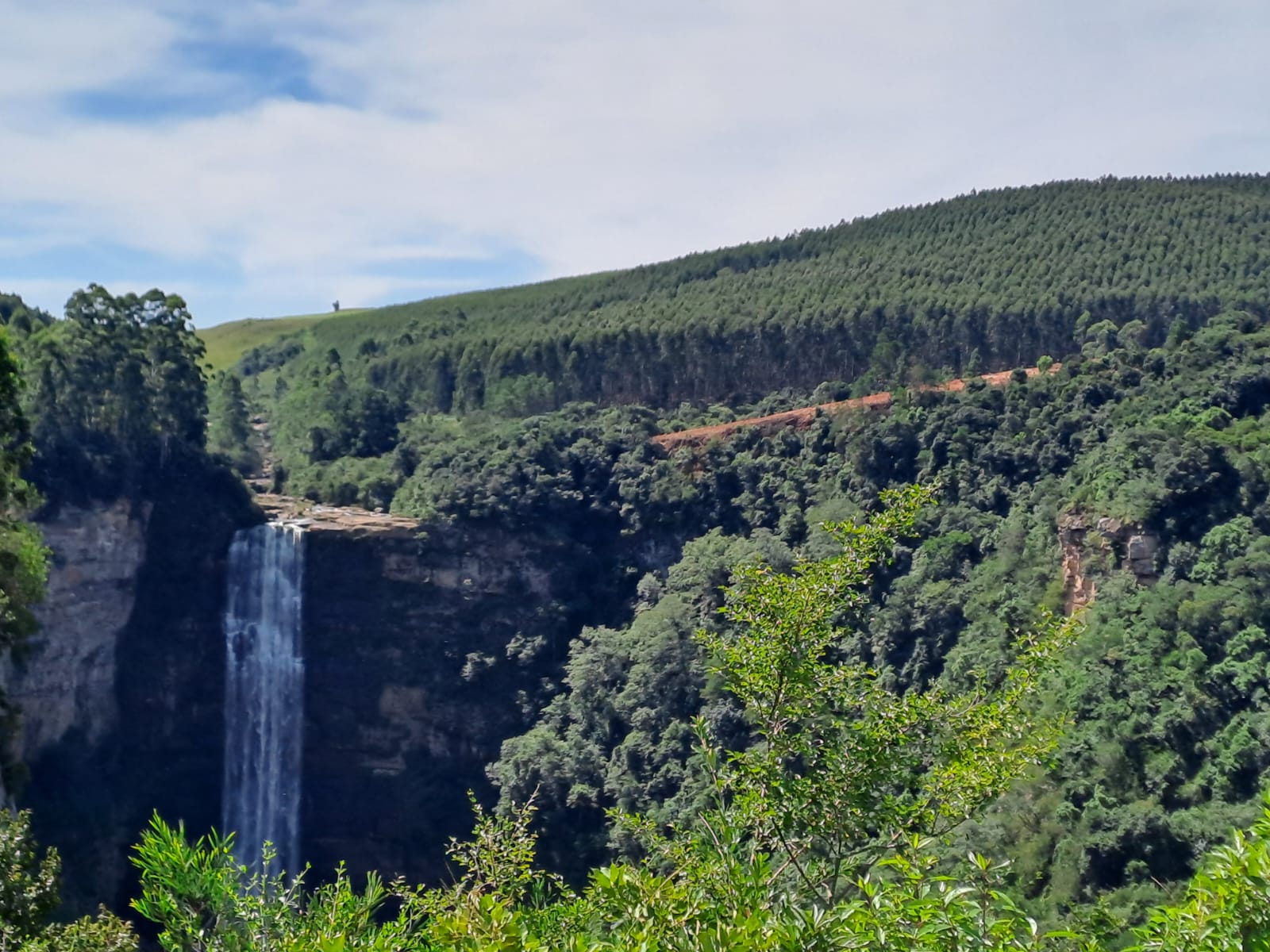
A model of responsible forestry for the future
Innovation blossoms in the heart of Africa as the Forest Stewardship Council™ (FSC™) continues to lead the charge for responsible forest management globally. Established over three decades ago to combat global deforestation, degradation, and unsustainable forest management practices, FSC's mission continues to address the unique challenges and opportunities within Africa's diverse forest landscapes.
Addressing critical needs
According to the UN Food and Agriculture Organization (FAO), Africa loses nearly 4 million hectares of forests each year. But to address this challenge and the myriad of forest issues facing the continent, traditional government-led efforts are far from sufficient. The emergence of FSC as a market-based, voluntary instrument, was a welcome innovative tool to address this challenge and accelerate the transition towards responsible forest management, and by so doing, effectively addressing policy and market failures that plagued the sector.
Embracing challenges and opportunities
FSC's unwavering commitment to innovation permeates its entire system, from setting robust standards to ensuring effective implementation.
This relentless pursuit of improvement guarantees the system's relevance in a rapidly evolving landscape, addressing emerging challenges in responsible forest management.
While limitations exist, such as resource constraints and ensuring adequate local community representation , access to certification, and uptake of certification, FSC actively seeks solutions.
A concerted effort is required to achieve widespread and effective forest protection across Africa's vast 637 million hectares (including 290 million hectares of working forests). That is why government commitment to FSC principles is crucial. Increased government recognition, as seen in countries like Gabon, the Republic of Congo, and Uganda has demonstrably incentivised sustainable practices and bolstered forest management and nature protection.

Becoming a better leader in forest stewardship
Close to three decades of experience in Africa have equipped FSC to become a leader in the sustainable forestry. This translates into a continuously evolving system, with regularly refined standards and processes. This unwavering commitment to learning allows FSC to adapt seamlessly to a dynamic environmental and social landscape.
FSC's success is further underscored by its proven track record, certifying over 160 million hectares of forest globally, of which nearly 9,9 million hectares in Africa alone. FSC’s dedication extends beyond certification, offering ongoing support to ensure certified entities maintain compliance with the evolving standards.
Adapting to change
FSC actively aligns its Principles and Criteria (P&C) with the latest advancements in forest management to reflect stakeholder consensus and concerns. Incorporation of aspects such as Intact Forest Landscapes (IFLs) and Free, Prior and Informed Consent (FPIC) exemplifies this dedication to staying relevant and sensitive to changing stakeholder perceptions, while maintaining a robust standard and rigorous processes.
In 2021, FSC introduced new guidelines to ensure a participatory and equitable approach to decision-making through FPIC. This strengthens stakeholder involvement and reaffirms the commitment to sustainable forest management. Consequently, all stakeholders contribute to improving the well-being of Indigenous Peoples and communities.
The launch of the FSC Indigenous Foundation in 2016 further solidifies this commitment. This independent organization fosters collaboration between Indigenous movements and diverse partners, actively promoting the rights and self-development of Indigenous communities across Africa.
Recognizing the vital role of IFLs, FSC will be launching pilot projects in the Congo Basin this year. These projects aim to solidify IFL conservation efforts and contribute to the preservation of ecologically significant landscapes.
Sustainable plantation forestry: innovation key to protecting natural forests
The Forest Stewardship Council (FSC) promotes responsible plantation management as a way to protect natural forests. While plantations can't fully replicate the intricate ecosystems of natural forests, FSC certification ensures they are managed with environmental and social responsibility at the forefront.
FSC takes a firm stance against deforestation. Plantations established by replacing natural forests after 1994 are ineligible for certification. However, for plantations established on converted land between 1994 and 2020, FSC certification is possible, but only after demonstrably repairing any social and environmental damage caused by the conversion. This commitment to restoration strengthens FSC's position.
This commitment echoes in South Africa, where 80% of commercial timber plantations hold FSC certification. FSC actively fosters collaboration between companies and communities, minimizing negative impacts and maximizing the benefits of certified plantations, just like in South Africa. Further to this, plantation forest owners in South Africa are involved in various biodiversity initiatives with program partners in their plantations and high conservation areas, as well as important watershed management activities with WWF-SA.
Certificate holders such as Sappi undertake considerable silviculture research at their Forestry Research Centre to develop hybrid seedlings for changing climatic conditions and pest resistance.

Concrete innovations
FSC's dedication to innovation yields a bountiful harvest:
- Accessibility for All: FSC tackles the limitations of cost and complexity through the SLIMF (Small and Low-Intensity Managed Forests) and the CIP (Continuous Improvement Procedure). These initiatives provide tailored requirements, making certification accessible to smaller producers.
- Enhanced standards: From ensuring traceability through newly developed blockchain technology to incorporating Intact Forest Landscape (IFL) protection within standards, FSC continuously improvers its practices.
- Holistic forest management and adding value to forest: The Ecosystem Services Procedure fosters a more comprehensive approach to verified impacts associated with sustainable forest management. It allows forest managers to add more value to the forest they are managing via a range of services.

Going beyond certification
FSC's reach extends beyond mere certification and actively fosters:
- Landscape-level partnerships: Collaboration with relevant actors broadens the focus beyond the Forest Management Unit (FMU) level.
- Market facilitation: FSC certification acts as a bridge to market access, supporting compliance with regulations like the European Union Timber Regulation (EUTR).
Forests for all forever
These interconnected elements paint a vibrant picture: FSC's unwavering commitment to continuous improvement and adaptation through innovation stands tall as a testament to its dedication to addressing the challenges of sustainable forest management in Africa.
FSC's impactful story on the African continent serves as a beacon of hope. Through strategic partnerships, research, and capacity building, FSC is actively cultivating a future where Africa's forests not only survive but thrive, ensuring their continued health and benefit for generations to come.
Contributors:
Nana Darko, FSC Africa Certification Manager
William Lawyer, Policy Manager, Africa
Editors:
Israel Bionyi, FSC Africa Communication Manager
Gerard Busse, Marketing and Communication Manager, FSC Southern Africa
